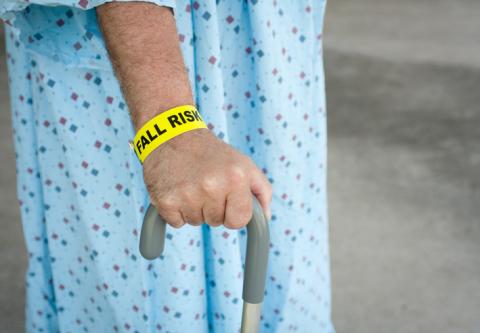Blog
Older adults: Daunted by learning a new task? Learn three.
Posted on August 5, 2019 - Learning several new things at once increases cognitive abilities in older adults, according to new research from UC Riverside. UCR psychologist Rachel Wu says one important way of staving off cognitive decline is learning new skills as a child would. That is, be a sponge: seek new skills to learn; maintain motivation as fuel; rely on encouraging mentors to guide you; thrive in an environment where the bar is set high.
Hospitals fall short in teaching fall prevention to departing patients
Posted on July 31, 2019 - Falls are a leading cause of hospitalizations and emergency room visits among older adults, but until now, little was known about the relationship between falls and hospital readmissions. A new University of Michigan study found that in people 65 or older, fall-related injuries within a month of hospital discharge ranked as high as the third-leading diagnosis for readmission. The risk was greater for patients already deemed fall risks, or who were discharged to their homes or home health care.
At 75, Taking Care of Mom, 99: ‘We Did Not Think She Would Live This Long’
Posted on July 29, 2019 - Not many years ago, Lynda Faye planned to spend her retirement gardening in Amherst, Mass., and visiting her eight grandchildren. Not on the list of golden-years pursuits: caring for a frail elderly parent. Ms. Faye is 75, and her mother, Yetta Meisel, a widow, is 99. The former art teacher fills her days helping her mother bathe, making her meals, picking up medications, scheduling home aides and transporting a wheelchair for excursions.
CAN COMPUTER USE, CRAFTS AND GAMES SLOW OR PREVENT AGE-RELATED MEMORY LOSS?
Posted on July 24, 2019 - A new study has found that mentally stimulating activities like using a computer, playing games, crafting and participating in social activities are linked to a lower risk or delay of age-related memory loss called mild cognitive impairment, and that the timing and number of these activities may also play a role. The study is published in the July 10, 2019, online issue of Neurology®, the medical journal of the American Academy of Neurology.
Making an Emergency Preparation Plan? Don’t Forget Heat Waves!
Posted on July 22, 2019 - This is the time of year when our attention turns to natural disasters. The U.S. has already experienced our first hurricane this year. Summer brings tornadoes throughout the nation’s midsection. And a series of earthquakes recently struck the West. Time to make our emergency preparation kit and plan our evacuation route, just in case! But did you know that the Centers for Disease Control and Prevention (CDC) lists extreme heat as the most deadly of all natural disasters in the U.S.? Heat waves take the lives of more people than all other natural disasters combined.




